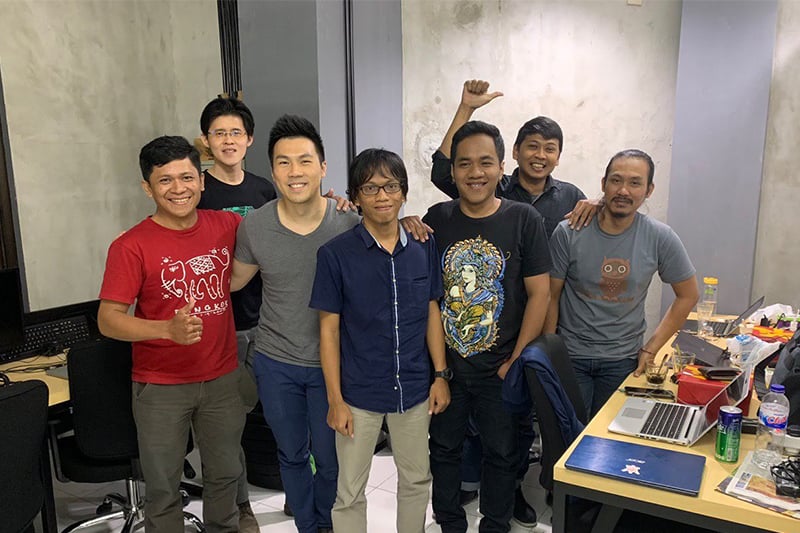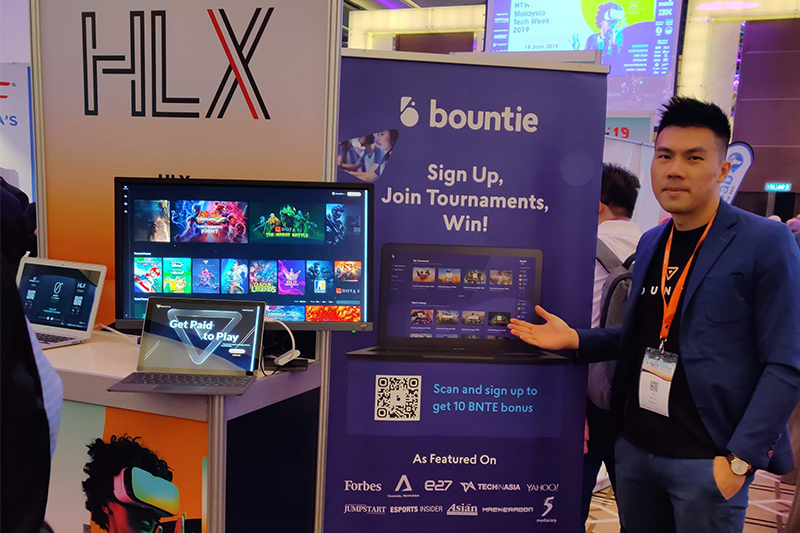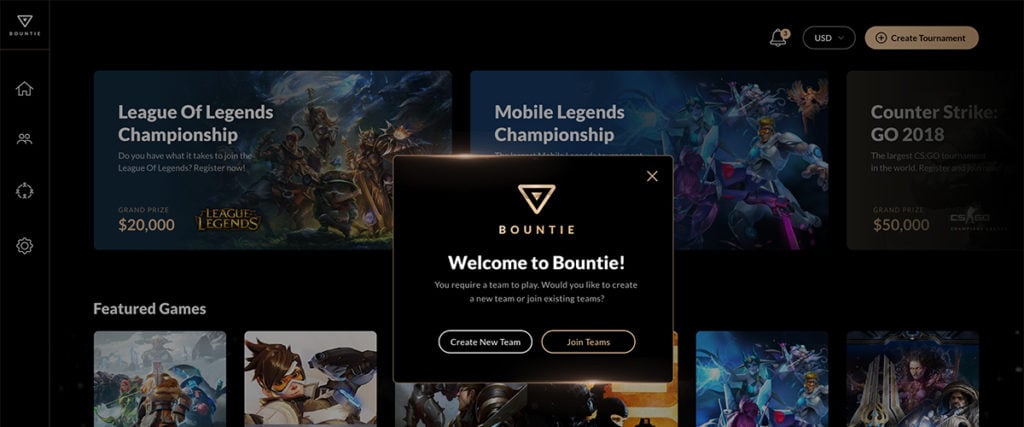Singapore-based online gaming platform Bountie is helping e-sports players go professional, introducing cryptocurrency prizes that can be cashed out into real money rewards. We talked to founder Lex Na.
By 2021, it’s expected that there will be a staggering 2.7 billion gamers worldwide. Lex Na grew up in Singapore as one of them. “I started when I was in primary school. After school, I’d just go home to play games,” he reminisces. Like the vast majority of his peers, however, his passion faced one very big problem: “I couldn’t make money doing it. Even though I loved it so much and wanted to do something with it, I couldn’t,” he says. Indeed, there are currently only around 500 highly paid professional e-sports players in the world to date, indicative of how difficult it is to make gaming a viable career. Instead of giving up, however, he decided to change things for the next generation of gamers with his new online tournament hosting platform Bountie.

“It wasn’t like the usual startup story where you suddenly wake up and have a genius idea. For me, it was a journey,” says Lex of how he got Bountie off the ground. A tournament hosting platform that allows you to compete against friends or people across the world, it not only opens contests up to include a huge variety of games, but also offers players the possibility of winning actual real money – broadening both its appeal and its group of avid competitors. “We realised that we would rather go down the long-tail route. As you know, Amazon is huge – not because they sell a few products, but because they sell everything. That’s where we got the idea to create a platform open to any game out there,” says Lex.
Key to the scope of possibilities Lex saw here was gaming’s significant reach. “People who don’t have money or time still play games. What if you could reward them for it?” And, given the sheer number of games and contests taking part at any one time, there are options aplenty for people to get in on the action. “There is something for everyone in the gaming world where you can be in at least the top 5% in something competitive. What really attracts people is this ability to shine regardless of who they are and what they are. And the gaming world is completely unique in this manner.”
You might also like E-Sports: The Billion Dollar Industry Growing Out of Bedrooms Around the World

What marks Bountie out are its real money rewards. “When you think about current platforms, they have what you call ‘in-game currencies.’ But these are virtual currencies that you can’t bring outside of the game itself,” he explains. On Bountie, they use cryptocurrency to make winnings real. “Now, you can withdraw them, send them to be exchanged and cash them out into your national currency.” Each tournament has a prize pool denoted in BTNE, or Bountie tokens, which use the cryptocurrency Ethereum’s ERC-20 standardisation to ensure secure and verified transactions.
In development since 2017, Lex says his site has captured the interests of up to 15,000 pre-sign-up users so far and hopes that the full iteration of Bountie will be accessible by over a million by the end of the year. “Compared to the whole gaming market, it’s just a drop in the bucket,” he laughs. Headquartered in Singapore, though, they’re perfectly poised for the colossal Asian gaming market on their doorstep – one that’s home to 1.2 billion players, a number that dwarfs any other region. “The current e-sports scene is limited to only a few elites. What about all the rest? We want to build something like LinkedIn for gamers where those who are always winning 2nd or 3rd can build their gaming resume,” explains Lex. Just like how Grab and Uber created an application where people can drive around and make USD 100-200 dollars a day, Bountie hopes to fill that niche for wannabe e-sports players. “This was the vision we had,” he says. “We want to create this whole concept where you don’t just play games because it’s fun, but that there’s also a way to get something out of it besides entertainment.”
Related Articles
AI-Driven Social Data Is Helping Us Build Better Neighbourhoods
The Japanese Pet Robot Lovot That Will Make You Happier
HK Tech Startup Platysens Talks About The Future of Wearables





